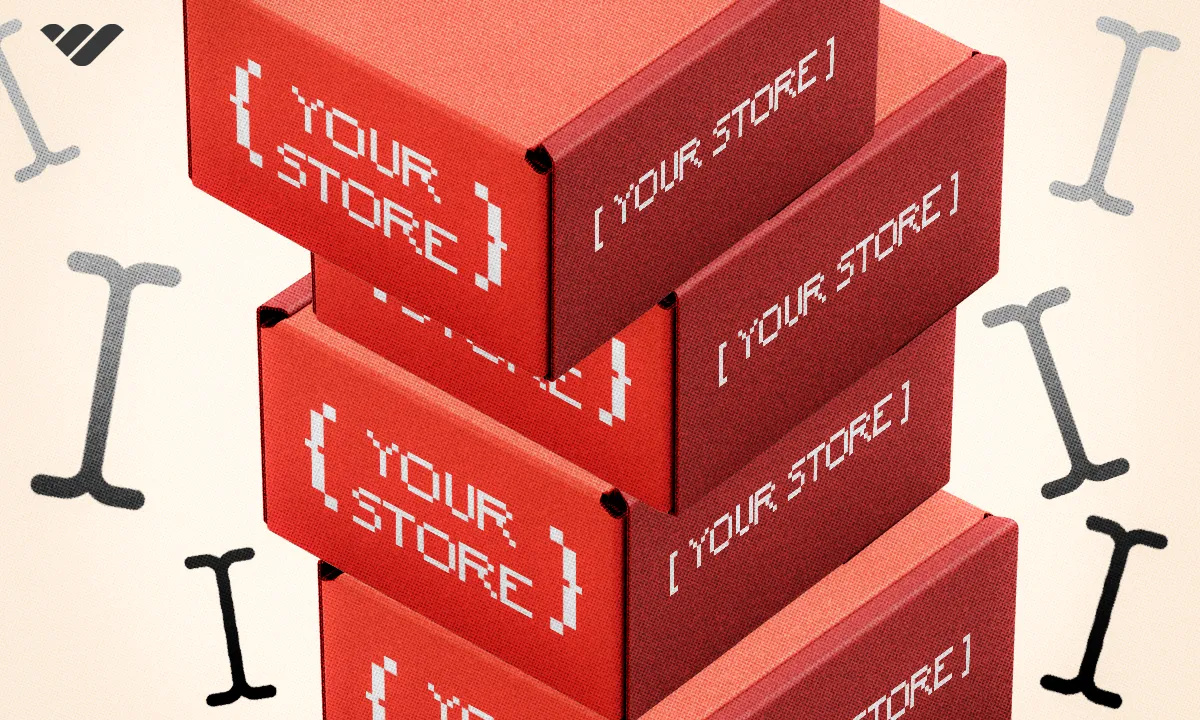Have a great idea for a business? Develop your brand with Whop’s guide to choosing a name for your online store.
Key takeaways
- A strong store name should be memorable, unique, relevant, evergreen, and available as a domain.
- Choose a name flexible enough for future growth—overly specific names limit expansion into new product categories.
- Avoid names too similar to existing brands, as trademark disputes are costly and typically favor established companies.
Launching an ecommerce store is a great way to start your journey to financial freedom as an online entrepreneur.
However, to stand out in a crowded market, you need a strong brand identity. This starts with choosing a good store name.
It’s important to take some time to find a name that positively resonates with customers. It should be something memorable, state what you’re all about, and be flexible enough to grow with your business.
In this guide we look at the elements that go into a great store name, so that you can start building your brand and racking up sales. We also introduce you to some tools that can help you find the perfect identity for your online store.
Why is Your Store’s Name Important?
Launching an ecommerce business offers a huge opportunity, as our latest stats show:
| Share of Global Retail Sales | 21% |
|---|---|
| Global Revenue (2024) | $6.3 Trillion |
| Average Revenue Per User | $1.079 |
| Market Penetration | 53.9% |
| CAGR (2024-2028) | 9.83% |
However, there is so much competition out there in the world of ecommerce. Your store name is an important tool which helps to differentiate your store from your rivals and encourages customers to buy from you.
Your store’s name forms part of the first impression people get of your ecommerce business and of your brand. It can help to create a “vibe” for your store and give potential customers an idea of what you’re about. The name also forms the basis of your branding, from the logo and social media presence to the wider marketing strategy. It can even affect how customers interact with your brand and influence their buyer behavior.
In addition, changing the name of your store later on will be a hassle and may lead to confusion and even a loss of revenue. So, it’s worth taking the time to find a store name that will help you to build and grow your ecommerce business.
What Makes a Good Store Name?
Your store name makes a statement. So, whether you want your brand to be edgy, goofy, or on-trend, choose a name that makes your identity clear.
The main elements of a good store name are:
Memorable
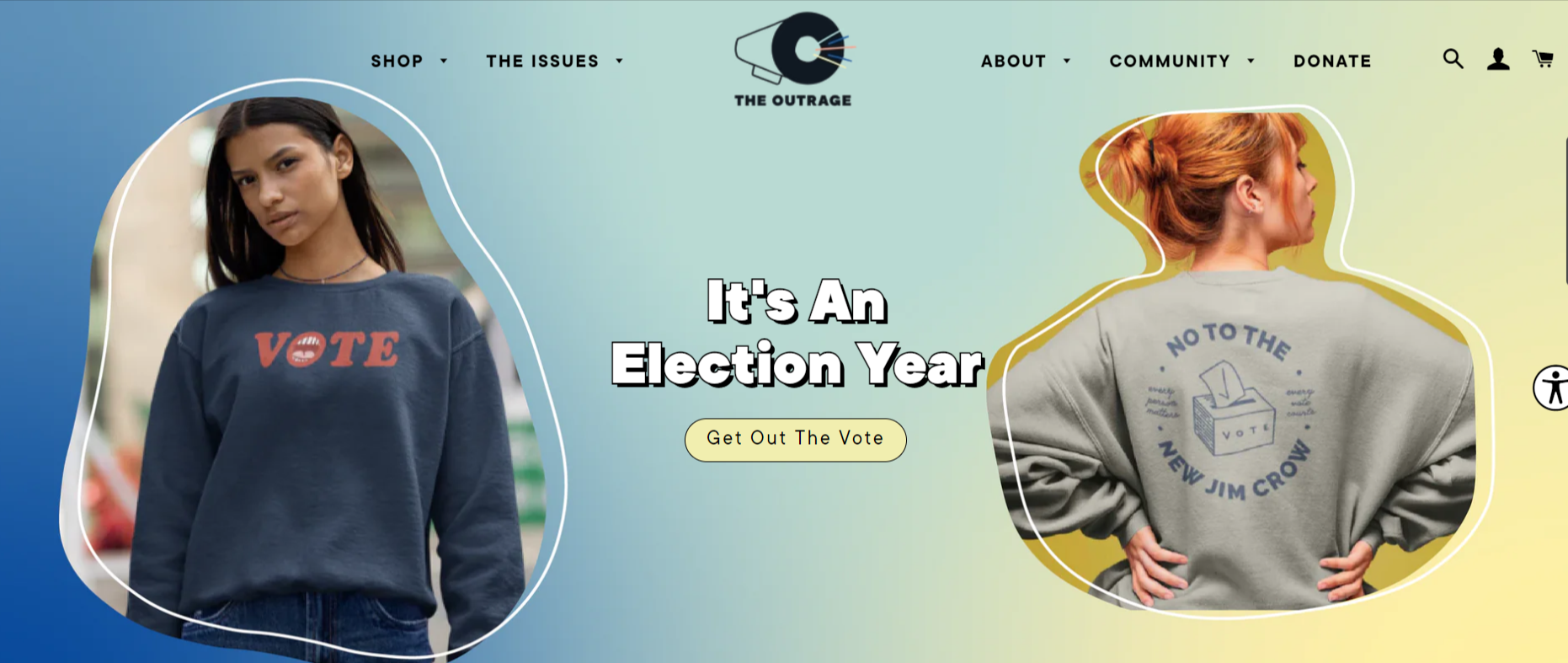
One of the main jobs of your store name is to lodge in people’s minds, so your store becomes the “go-to” in your niche. Think about how best to express what your brand is about.
This doesn’t just mean what you sell, it also covers your brand identity. Built into this is your target audience. Your store name should reflect the type of customer you want to attract, whether that’s Gen Z, busy parents or professionals.
Evergreen
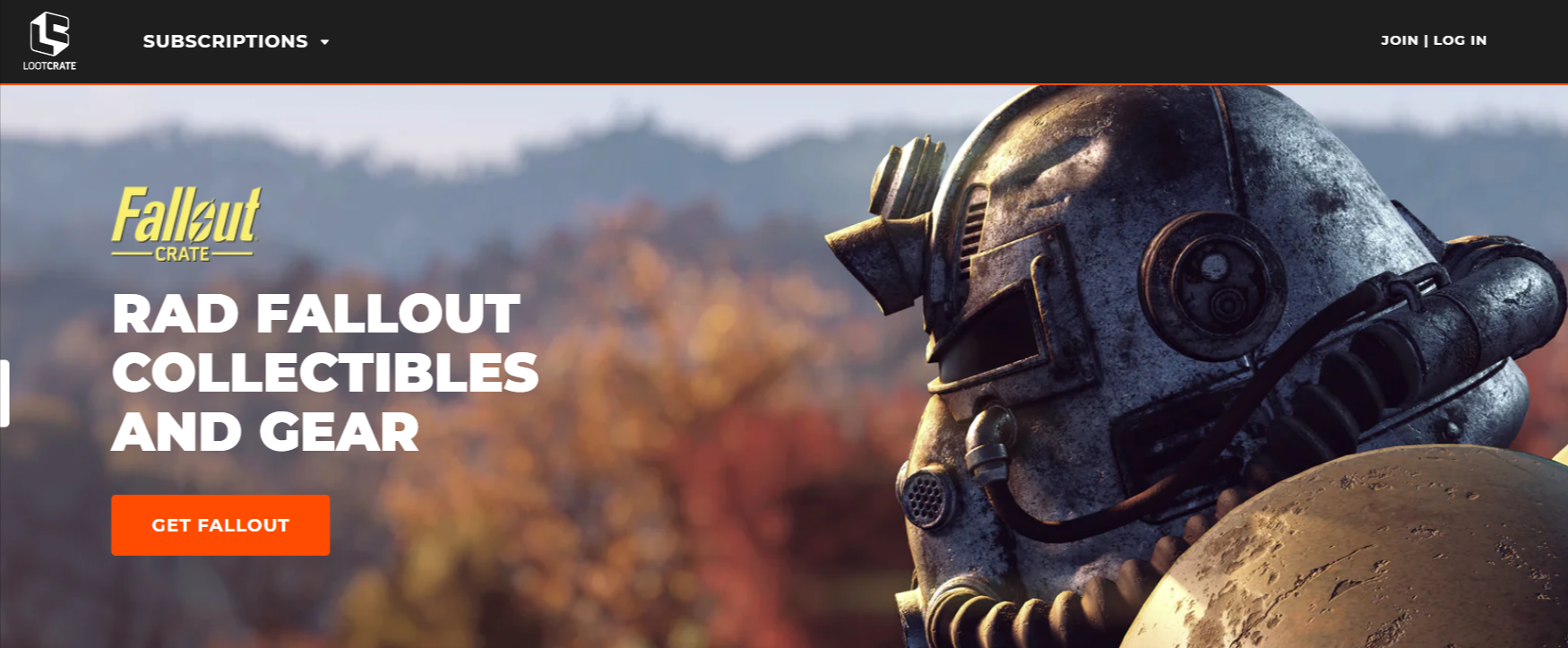
Another thing to think about is choosing an evergreen name. That means one which will work if trends change. Even if your products are on-trend or aimed at a younger demographic, the store name should be future-proof. For example, Apple was first known by the name 'Apple Computers', but this changed to just 'Apple' in 2007 as the company began to focus more on consumer electronics, not just computers.
If you want to capitalize on passing trends, you can run specific marketing campaigns or introduce seasonal product lines. However, your underlying brand or store name should be flexible.
Unique

Related to the above point about being memorable, your store name should be unique. The name provides your first opportunity to state your brand image, so make it distinctive.
However, “unique” can be a double-edged sword. While a unique name can stay in people’s minds, a name which is too obscure can lead to confusion.
So, when choosing a store name, make sure it reflects what you do. If you want to go with a unique choice, it may take more work to communicate the brand identity to customers.
Relevant
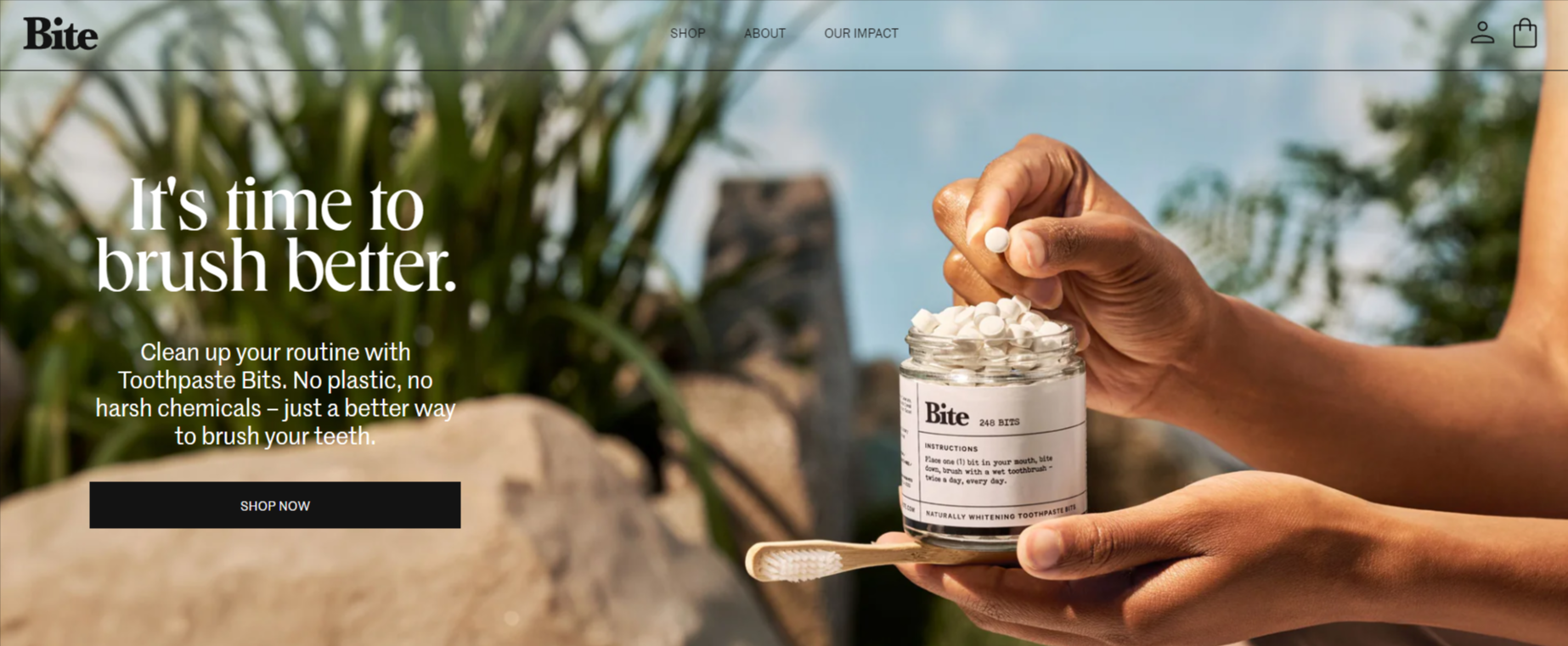
When choosing a store name, make sure it’s relevant to what you sell. This doesn’t have to be limiting. You can still get creative but think about how you can communicate what your store is about.
Relevant can mean to your brand identity as well as the products you sell. Whether edgy, funny or clever, a relevant name is a great way to encourage customers to engage with and buy from your store.
Available

A final thing to consider is whether the name you want is already in use. A simple internet search will show you if the domain attached to that name has been taken.
Not all domains registered have a functioning website, so it may be possible to contact the owner or a specialist domain broker.
Another option is to buy a different extension, such as “.co”. However, this can lead to confusion with the existing site. Most people still expect a “.com” domain extension.
As well as finding out if the domain is in use, it’s important to make sure you don’t infringe on a trademark or the name of a registered business. There is a database on the U.S. Patent and Trademark Office (USPTO) website where you can check registered trademarks.
Types of Store Names
There are several ways to go with your store name. Which type of name you choose will depend on how you want to present your store to the world. Here are the main options:
Straightforward, factual store names
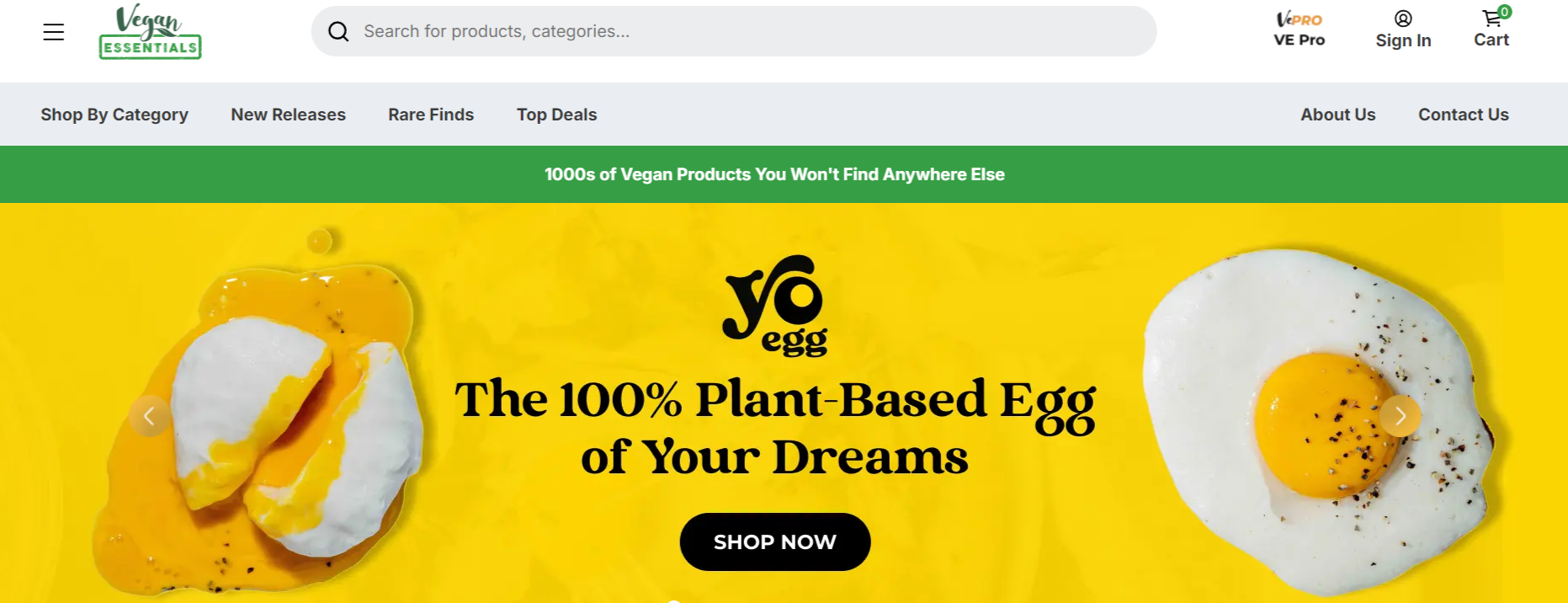
A straightforward store name simply states what you’re about without adding anything fancy. These types of store names can suffer from a lack of originality which means they are less memorable to customers.
This may be more of a problem in an overcrowded space, like clothing. However, they can work well in a smaller ecommerce niche where people might be specifically looking for what you offer.
Examples of straightforward store names/brands:
- Vegan Essentials (online vegan grocery store)
- Simply Chocolate (chocolate gifts)
- The Camera Company (photographic equipment)
Remember though, that this can cause an issue if you ever decide to expand your business offerings. It would be difficult to branch out into potato chips and hard candy with a name like 'Simply Chocolate'.
Offbeat, interesting names

Offbeat names are memorable, make a statement, and help to create a strong brand. They can even become nouns, which enter the popular vocabulary (such as Google). However, they can also create confusion about what you’re about.
So, if you choose an offbeat name, make sure you have a clear image, and be prepared to communicate what you do effectively to customers.
Examples of offbeat store names/brands:
- Larq (self-cleaning water bottles)
- Potion (video-making software)
- Whop (#1 place to build your online business)
Personal brand names
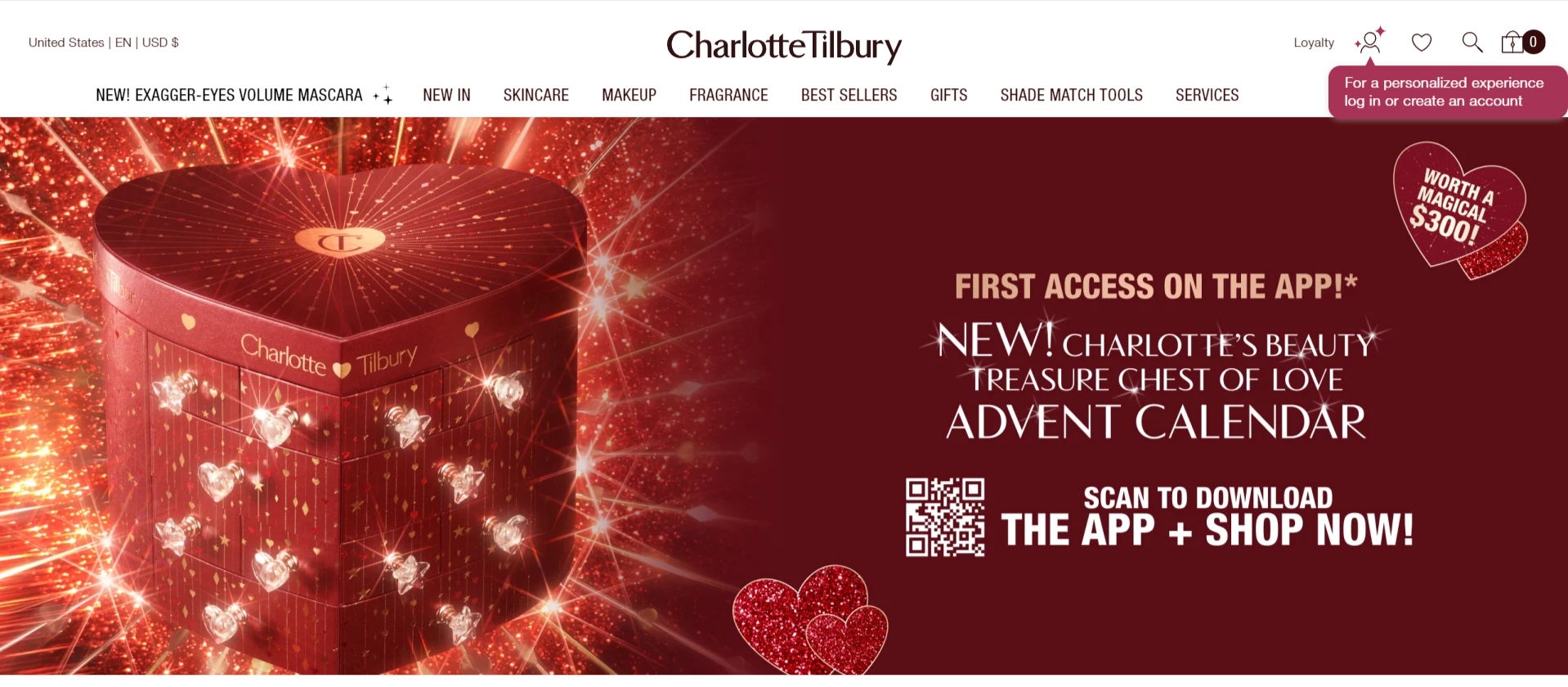
If you are your brand, it makes sense to go with a store name that reflects that. This works with designers and also for companies with an impressive pedigree or a high degree of name recognition.
On the other hand, if you don’t have a well-known name, choosing it as a store name risks customer confusion. You can make clear what you’re about by adding a word or two to the name to clarify what you sell.
Examples of personal store names/brands:
- Charlotte Tilbury (makeup and skincare)
- Elizabeth Suzann (clothing)
- Di Bruno Bros. (gourmet food)
Humorous names to make your customers laugh

Funny words, puns, and names which are a play on words are memorable and can be a great way to engage with customers. The danger is that humor doesn’t always translate, which can risk putting some customers off your brand.
Even if potential customers aren’t offended, a cheesy business name can lead to people not taking you seriously. Other risks include infringing on a trademark if you riff off of something well-known.
Examples of humorous store names/brands:
- Düng (healthy snack bars)
- Scrub Daddy (cleaning accessories)
- Dude Wipes (male hygiene products)
Edgy and risqué names
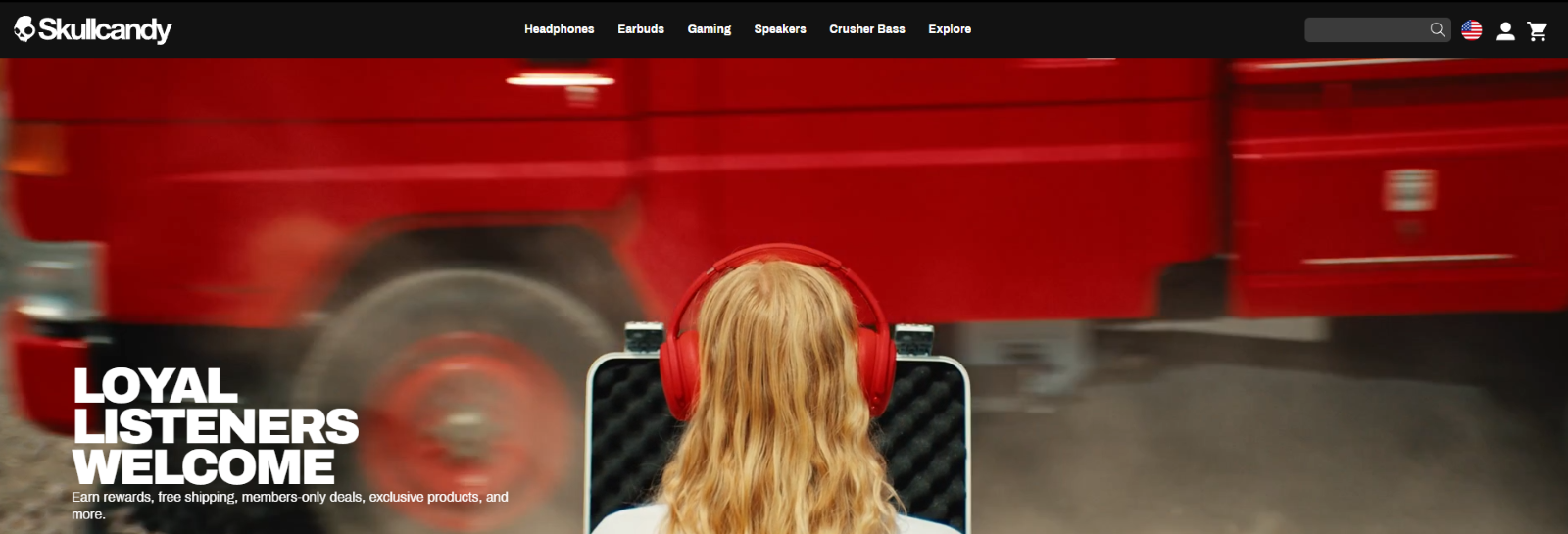
Another way to go is to pick something provocative or risqué. This can be a risky way to go but it ticks the “memorable” box and defines your vibe. Again, the risk here is potentially alienating some customers.
So, make sure your name aligns with your customer base. Social media is a good way to get a range of opinions before you go ahead and launch your store.
Examples of edgy store names/brands:
- Skullcandy (headphones and earbuds)
- Liquid Death (bottled water)
- Sassy B**ch (wine brand)
What to Avoid When Naming Your Store
Now we’ve been through some best practices for choosing a store name, here are a few things to avoid.
Names too close to an existing brand or business
Choosing a name close to a popular existing brand might seem like a good way to generate interest and bring additional visitors to your site. The problem is that big businesses have the power and resources to make life uncomfortable (and expensive) for you if they think your brand is too close to theirs.
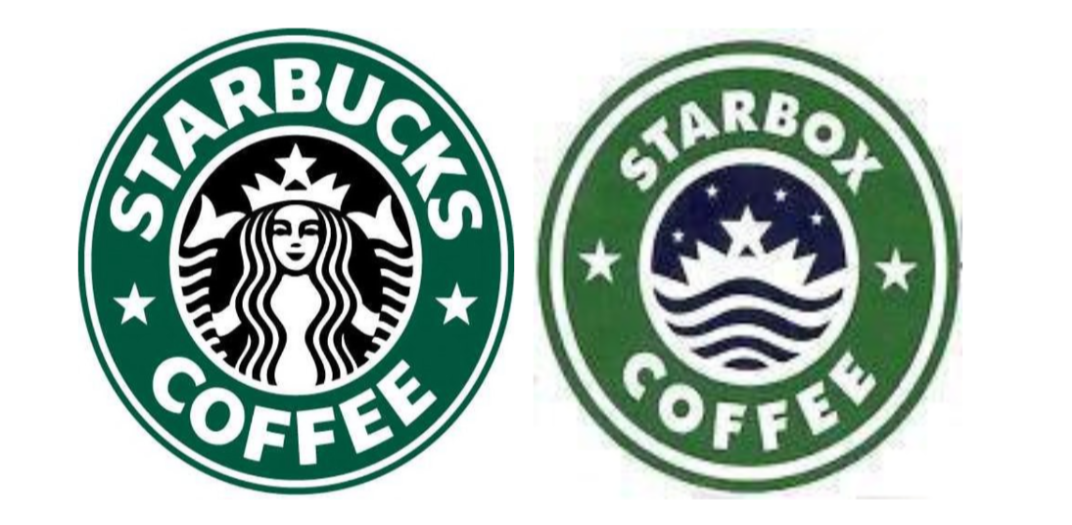
There have been some high-profile trademark infringement cases brought against small businesses by larger players. These are often costly, drawn out, and decided in favor of the more established firm. The 2017 Starbucks case in the above image was settled with the smaller Star Box brand changing its name and design.
Offensive names
As we noted above, there are lots of great risqué store names and brands. However, there’s a fine line between provocative and offensive. If you go down this road, make sure it’s done for a reason.
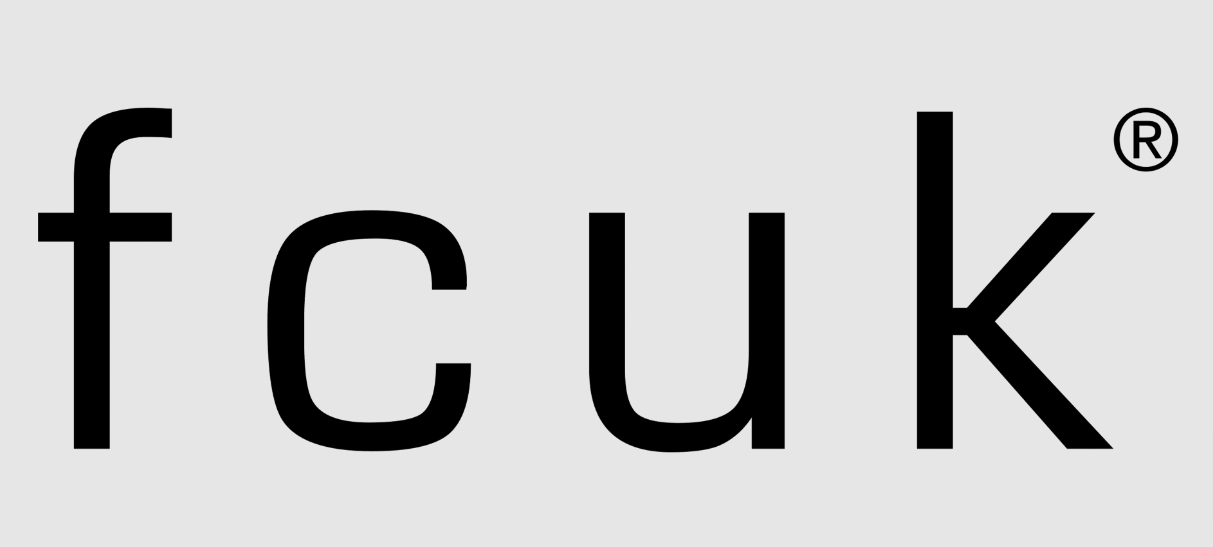
Back in the 1990s, clothing brand French Connection generated controversy with its “FCUK” logo and marketing campaign. This led to a bump in sales, as it projected an attitude that resonated with its younger target market.
Unless “controversial” is your vibe, it’s a good idea to get some feedback on any names which may cross that line. This is especially true if you want to sell goods in multiple countries, where there might be differences in what’s acceptable.
Names which are too long and/or confusing
As we mentioned earlier, it’s important to have a unique name. However, if people can’t remember what it is or can’t pronounce it when someone asks one of your customers where they got that awesome t-shirt, that’s not helping your business. You want your store name to be memorable and easy to find.

This extends to the URL. Some names that look okay in a logo might not work well as a domain. Numbers, hyphens, and weird spellings in a URL might result in customers not finding your store.
Names which mislead or make unverified promises
This is relevant in sectors like health and fitness, where it might be tempting to opt for a name which promises your products will lead to weight loss or improve a medical condition. Unless you have research to back up your promises, this approach is best avoided.

It’s also relevant to stores which suggest their products are sourced from certain locations. An example is Manitobah Mukluks. The store has been on the receiving end of some bad reviews, largely because many of its products aren’t actually made in that region, even though its name suggests authenticity.
Names that are too limiting
Calling your business something too focused on one product type may prove to be a mistake if you later want to expand into additional product categories. Before you choose your store name, make sure it doesn’t limit what you might want to sell down the line.
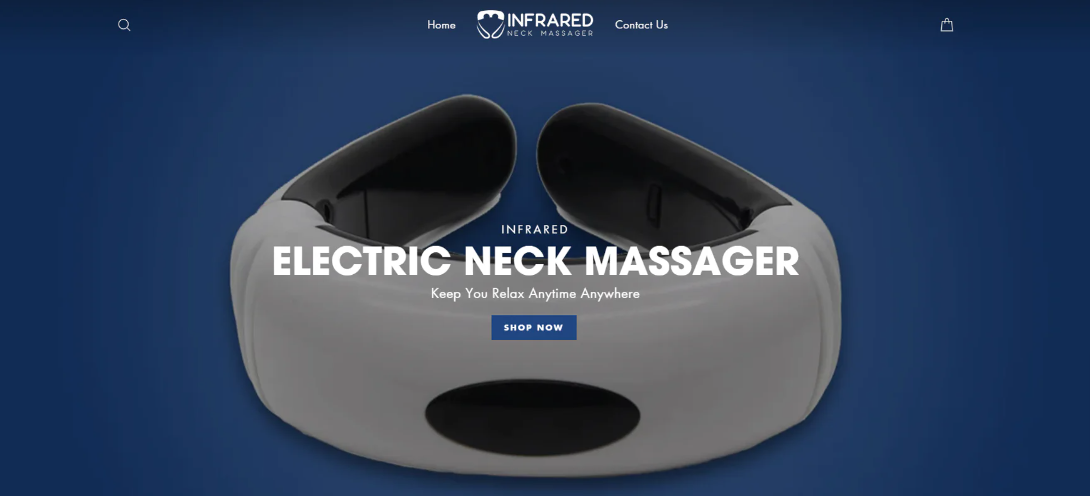
There is a difference between your products and the store, so – again – future proof your business by giving it a name that allows for pivoting and expanding what you sell.
Finding a Name for Your Online Store: The Best Store Naming Tools
If you need help choosing your online business name, here are some tools that can provide inspiration.
Free name generators

There are lots of free online name generators available. Nowadays, these are mostly AI-driven.
They are also often linked to ecommerce sites and web hosting services. The idea is that you find your store name, register the domain, and set up your store all in one place.
The tools generally involve simply plugging in some basic details, such as your industry, niche, and brand identity, and some ask for relevant keywords. The generator then lists names relevant to those prompts.
You can use any of these that appeals to you, unless it’s too close to an existing business. You can also use the generator as inspiration to create your own name.
As these tools are automatic, you still need to check out things like trademark infringement and name availability.
Examples of free store name generators include:
Shopify

Shopify’s business name generator lets you input any details you want about your store. No Shopify account is needed to use the generator.
For example, if we want to open an online store selling self-published recipe books, we can input the simple prompt, “recipe ebook publishing”. It then returns the following suggestions for a name:

As you can see, some of the suggestions are pretty straightforward, while others have a novel twist.
It also offers a “quick search” function, where you can simply pick a category for a list of more generic suggestions to get you thinking.
Oberlo
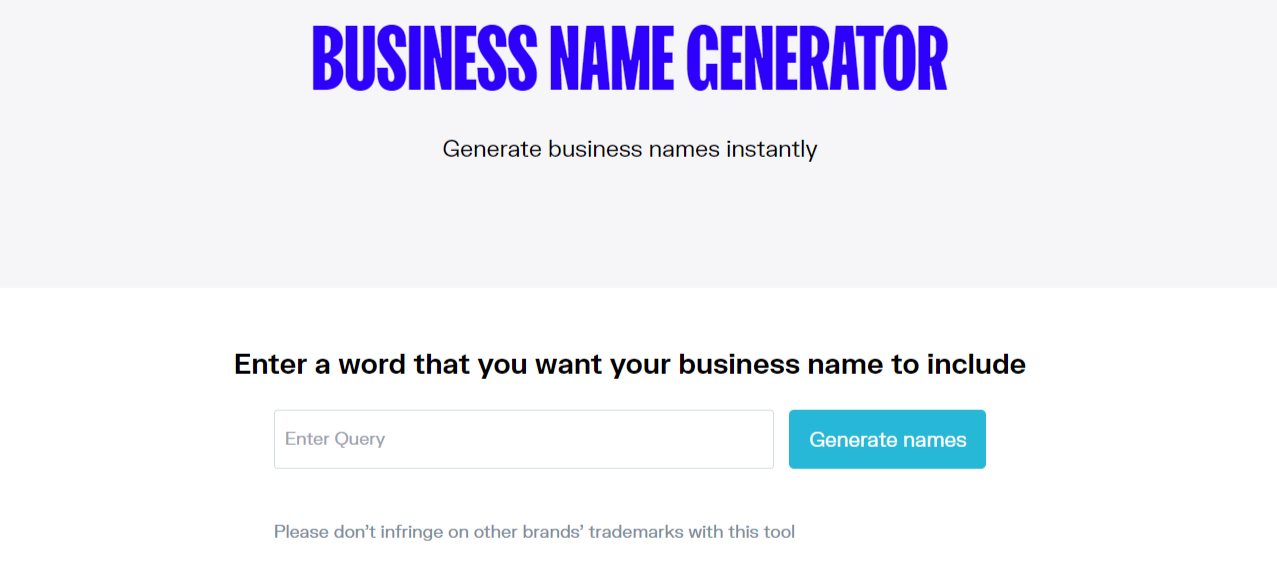
Oberlo is another free business name generator, which works with a simple prompt. It asks for words you want the business name to contain. You don’t need an Oberlo account to use the tool.
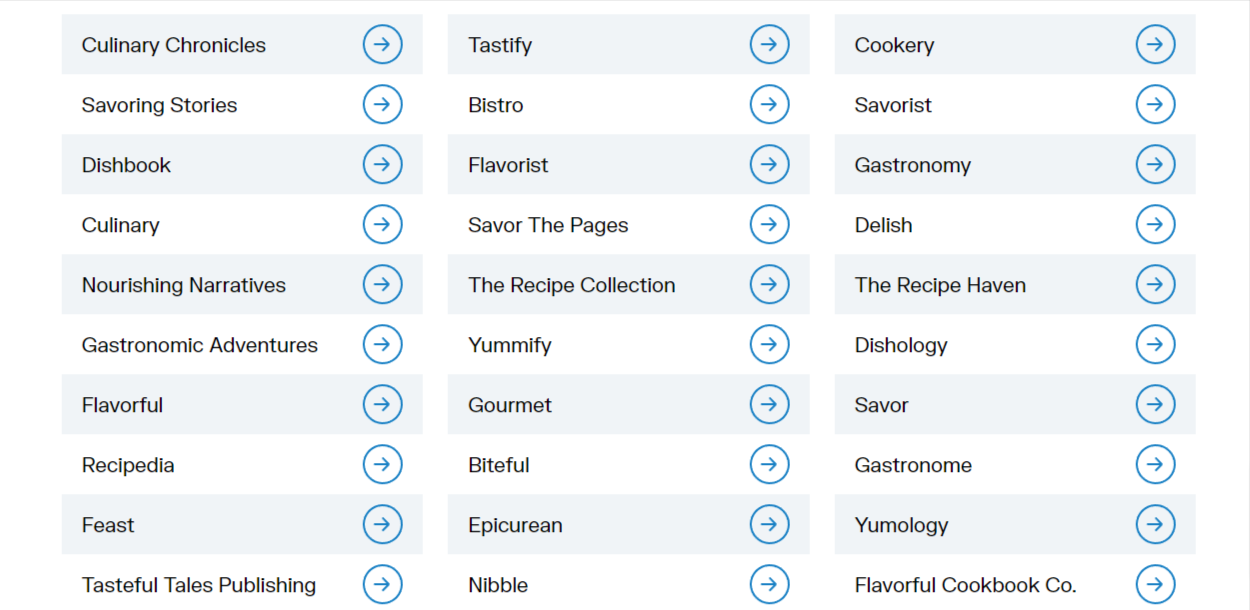
That same “recipe ebook publishing” prompt returns 49 results, including some featured on the Shopify list:
Wix

With the Wix name generator, you can search for names by keyword. The results can then be refined by industry. The tool is free to use without a Wix account.
Our “recipe ebook publishing” suggestions here include:
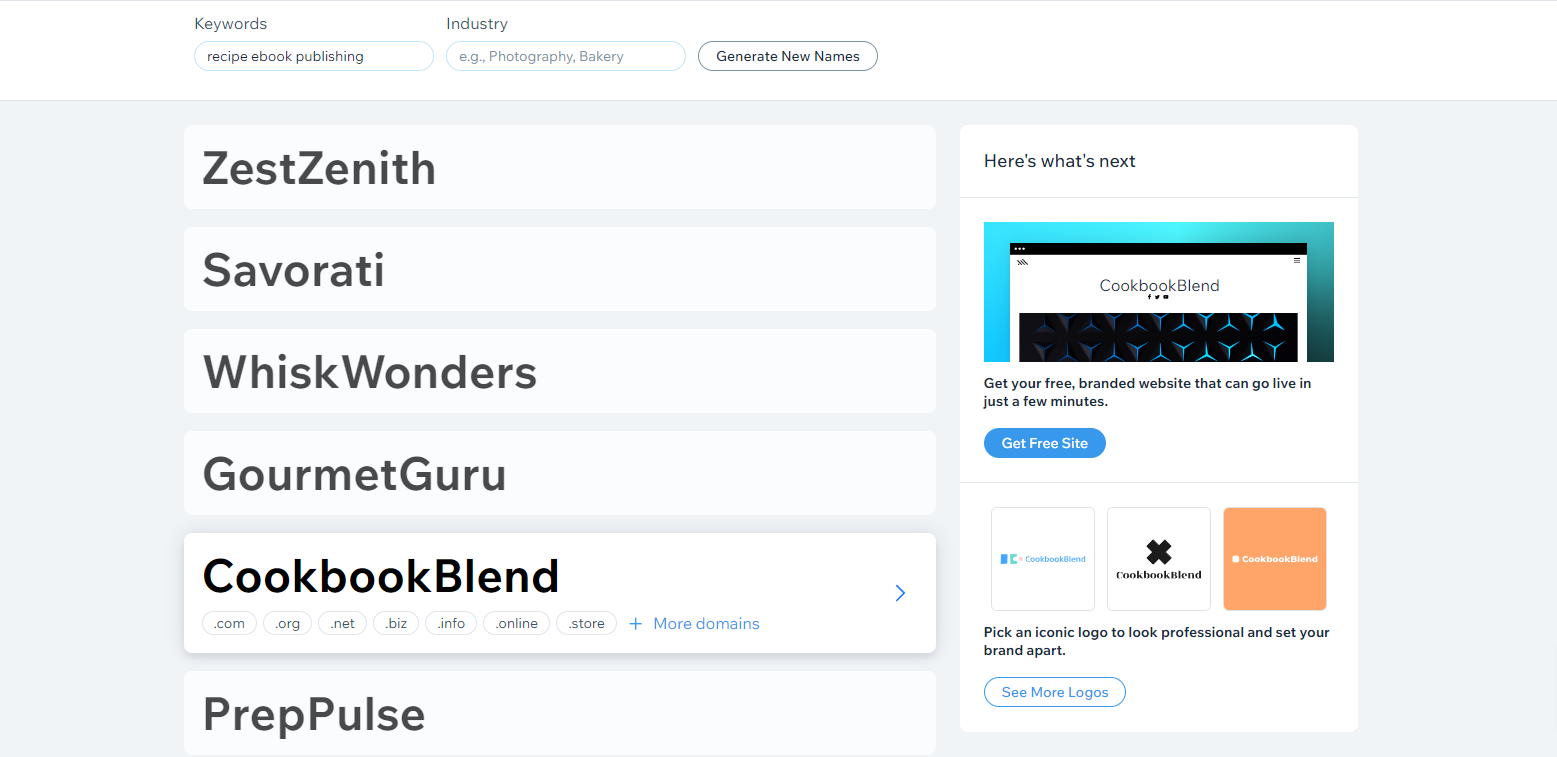
The difference is that Wix directly links the generator to the domain. Users are encouraged to buy the URL of their chosen name and to create their website on Wix.
NameSnack

Another popular name generator tool is NameSnack. Input some relevant keywords for a list of suggestions. The site claims to be the “most powerful” of its type, combining machine learning with an instant domain search.
Its suggestions for a “recipe ebook publishing” online store include:
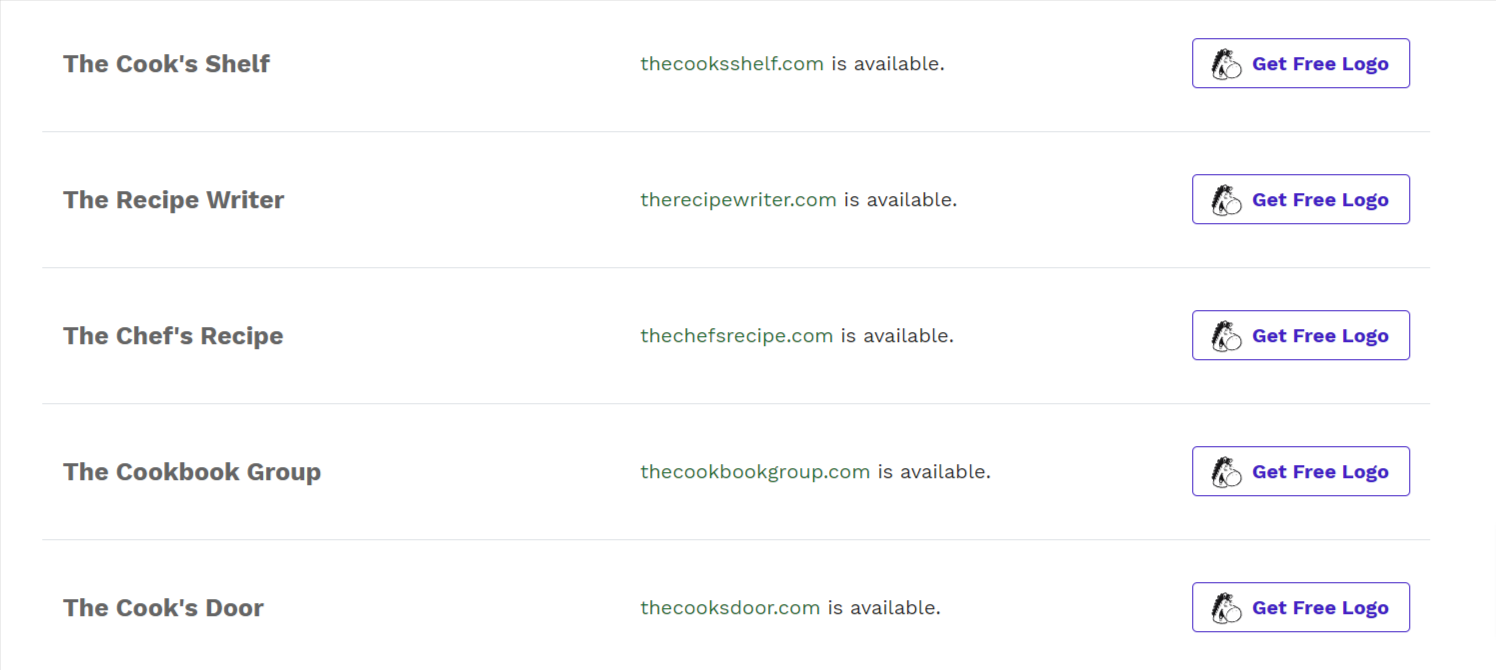
NameSnack also lets you know if the domain related to each suggestion is available and provides a link to a free logo maker.
ChatGPT
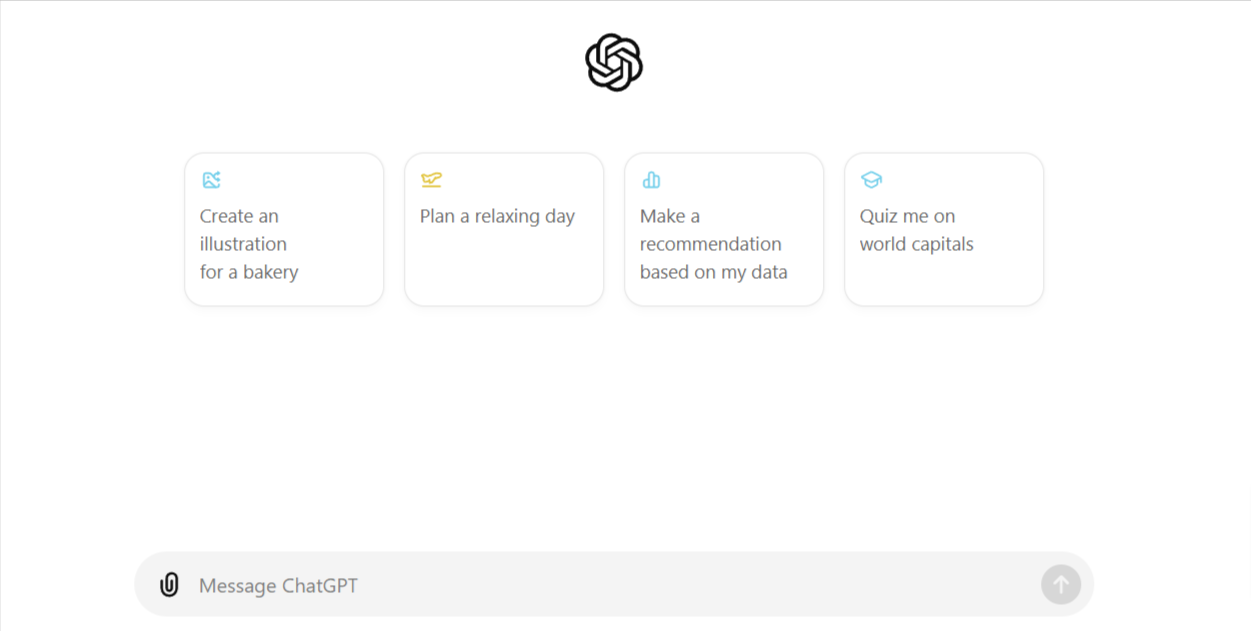
Finally, you can simply ask ChatGPT for suggestions for a store name. Input your query and add whatever detail you like. Once you have a list of ideas, you can refine it further until you find the right name.
The suggestions from the prompt “name for a recipe ebook publishing online store” include:
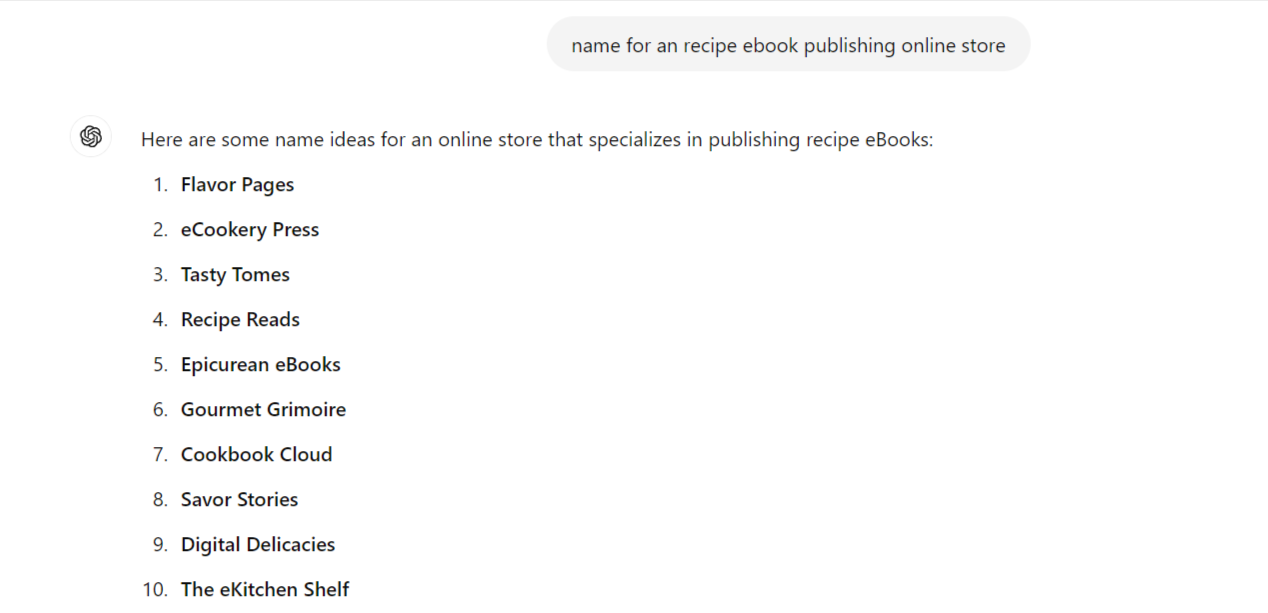
As you can see, all of these tools are pretty similar, with some overlapping in the AI-generated suggestions.
However, they are a great way to brainstorm to come up with the perfect name for your online store.
Registering Your Store Name
Once you’ve decided on a store name, there are various ways to register it, depending on how you plan to run the business.
1. Registering your domain
The first thing to do is register your website name. If you open your store through an ecommerce platform such as Shopify, you’ll have the opportunity to add a custom domain. You can also buy domains separately through a registration and hosting site like GoDaddy or a web building platform such as Wix.
As well as “.com”, you might want to register related domain extensions or alternate spellings of your domain name. This helps to ensure another business cannot start using a variation of your store name, creating confusion among customers.
2. Business name registration
While it’s not necessary in many cases, there are various reasons why you might want to register your online business in your state or country. These include if you plan to hire employees or raise financing. It also allows you to claim your business name, protecting it from being taken by someone else.
In the U.S., it costs around $20 to $520 to register a business. The process varies by state. There are various structures you can register your business as, including sole proprietorship, partnership, and LLC (Limited Liability Corporation).
3. Trademarking your store name
If you want to go beyond a simple online store and plan to build a larger brand presence, you may wish to consider registering for trademark protection with the USPTO.
If granted, the trademark is valid in the U.S. for 10 years, meaning you have protection against others infringing on that right. The process can take up to 18 months. Filing for a trademark costs around $225 to $400.
Now you know all about choosing a store name, it’s time to get your business up and running…
Building Your Business with Whop
At Whop, we supply all the tools you need to create and grow your very own online business.
As well as our all-in-one platform, we provide a range of resources to support entrepreneurs like you on their journey. If you want to build an ecommerce business, you can find your inspiration from those already enjoying success. Whop is home to thousands of creators, many of whom share their advice and experience on running an ecommerce business through courses and communities. Check out ecommerce products on the Whop marketplace here.

Already have an idea for your ideal online business? Whop supports selling all kinds of digital products and services. If you want to sell ebooks, online courses, webinars, coaching, paid community access, or anything else digital, you can do it with Whop. From choosing a store name to payment processing and managing your business, Whop helps you every step of the way. Plus, it costs nothing to get started with Whop - Whop takes just a 3% cut of your revenue, meaning Whop doesn't make money unless you make money.
You can create your very own whop in minutes and start selling today.
Store Name FAQs
Are there any laws or rules around business names?
Different rules are in place across the US states and in individual countries, so check this out before registering your store name.
Some of the rules relate to things we’ve already covered, like infringing trademarks or using a name that is too close to an existing one.
Also, avoid calling your business a name which could create confusion with a government department or agency. Finally, don’t add something like “Corp.” or “Inc.” unless you’ve registered your business as such.
Should I make my store name local to my country/city?
Generally, the name should be universal to open up the market. The exception might be if your location is part of your USP (unique selling point).
If you only sell traditional food or clothing from a specific region, this might be worth including in your store name. An example from retail is Seasalt Cornwall, which sells apparel internationally, evoking an authentic, nautical vibe from its maritime origins.
Can I change my store name?
Yes, but the process will be different depending on where your business trades. Make sure any change is communicated to your customers to avoid losing brand loyalty and revenue.


